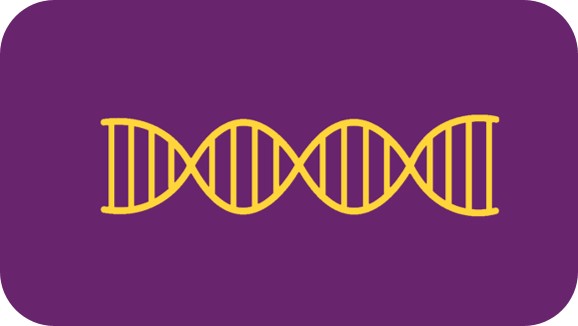DNA Sequencing
Our DNA Sequencing Service is quick and easy to use, with no need for lengthy registration or passwords to remember. Simply contact us and we will send you the appropriate documentation which you can then complete and send with your samples.
Samples and primers may be sent by post or overnight carrier. Lids should be secured with a little sealing film, and packed in a padded envelope along with your appropriate completed requisition form. Please note that incomplete requisition forms may lead to a delay in processing your samples. Please provide as much information as possible about your samples as this can often influence the way we process them, for instance in the case of Gateway vectors which contain palindromic sequences and are prone to secondary structure problems or samples with a high GC content. Turnaround time is normally 24 hours from receipt of samples.
Sequencing reactions are carried out using conditions optimal to each individual sample, ensuring the best data possible is obtained for each reaction. All data produced is evaluated with some manual editing where necessary. Your sequence data will be returned to you by email, or large batches will be uploaded to an ftp site.
We place a high emphasis on customer service and will provide tailored troubleshooting for any problem templates, and advice on sequencing strategies.
How to send your samples
We accept single tubes and half or full 96-well plates, either as DNA samples or completed sequencing reactions which are ready to load. 96 well plates must be Applied Biosystems 3730 compatible (please contact us for advice if needed). If only half a plate is used, samples should be loaded into odd-numbered wells only.
Single Tubes
We ask for a volume of 6µl of DNA per reaction to be sent so that we have sufficient to check the sample on an agarose gel and still have enough left to carry out the sequencing reaction even if the DNA is weak. If you have more DNA to spare please send it so that we have some available should we need to repeat any reactions. We are happy to provide advice on DNA preparation.
Custom primers, if required, should be sent at a concentration of 3.2 pmol/µl, a volume of 3µl per reaction is sufficient. We hold a selection of universal primers in stock, for details of these and advice on custom primer design, please get in touch.
Samples should be packed in a padded envelope along with your completed requisition form.
Plates and Ready-to-load reactions
For plasmid samples we require 125ng of DNA in a volume of 5µl of water to be added to each well, along with 1µl of primer at a concentration of 3.2 pmol/µl. For PCR products we require 5ng of DNA per 100bp of product, in a total volume of 5ul (For example, for a 500bp PCR product with a concentration of 50ng/µl, we would add 0.5µl of DNA to 4.5µl of water + 1µl of primer). We are able to run full or half 96 well plates. Directions on fill patterns and labelling will be included when you contact us.
Plates should be sealed carefully and packed in a padded envelope, along with your completed requisition form.
Ready-to-load reactions
If you prefer to prepare your own sequencing reactions we are able to run either individual tubes, half plates or full plates. Sequencing reactions should be carried out using Applied Biosystems BigDye Terminator Ready Reaction Mix, followed by an appropriate cleanup method. Directions on fill patterns and labelling will be included when you contact us.
Samples should be packed in a padded envelope and submitted along with your completed requisition form.
Receiving your data
Your data will be sent to the email address provided on your requisition form. If there were any problems with your sequencing you will be informed by email and offered advice as to the possible cause and how best to rectify it. All sequence data is archived, so can be retrieved at a later date should this become necessary, and all DNA samples and primers are retained for up to one year.
There are various freeware programs available which can be used to view and edit your sequence data. We will be happy to suggest these on contact.
Contact Us

Department of Biosciences
Durham University
Stockton Road
Durham
DH1 3LE


/prod01/prodbucket01/media/durham-university/departments-/biosciences/83453-1-1595X1594.jpg)